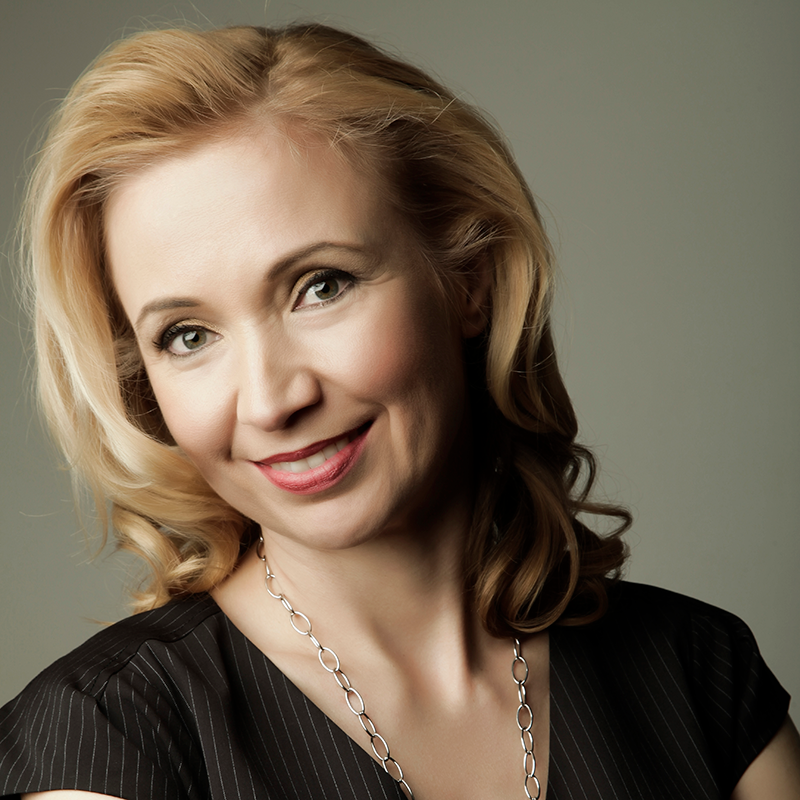
What a good deal looks like for early-stage businesses
For startups navigating the trials and tribulations of fundraising, understanding what makes a good deal can make or break their trajectory. To explore this topic, I spoke with Kimberley Waldron, Founder of Started PR, and Susanne Chishti, Chair and Founder of FINTECH Circle.
Both women bring unique perspectives to the table:

Kimberley is a communications expert specialising in PR for founder driven startups and fast growth fintechs.

Susanne is a seasoned leader in the FinTech ecosystem, known for building extensive networks and guiding startups to success.
In this Q&A we explore their insights on building partnerships, negotiating deals, and ensuring long-term growth.
I'd like to talk about your recent collaboration. What advantages does a female founder-led collaboration offer, and how do you see it benefiting businesses?
KW: For Started PR, building an ecosystem within the startup space is about creating value. We’ve admired what Susanne and the FINTECH Circle team have achieved – their extensive network, regular angel rounds, and the support they provide budding founders. It aligns perfectly with our mission to help early-stage businesses navigate investment rounds, retain brand value, and deliver better financial services to end users.
SC: Startups are like diamonds; they start as rough stones that need polishing to shine. Even with the best technology and teams, success is difficult without visibility. Kimberley’s expertise ensures startups stand out, attract customers and investors, and overcome hurdles. That’s why our partnership with Started PR is critical for enabling startup success.
Let’s talk about the foundation of any good deal. What are the key characteristics of a good deal for early-stage businesses, and how can founders recognise one when it’s presented to them?
SC: Many founders don’t know what a good deal looks like because it’s often their first term sheet. Meanwhile, investors see hundreds of term sheets monthly and know how to optimise them in their favour. To level the playing field, founders need experienced advisors, especially lawyers who understand term sheets. Founders should also understand what investors want: upside potential and downside protection. Positioning yourself to attract multiple offers is key to stronger negotiation power.
KW: I agree. Founders should ask themselves whether the deal motivates them. Capital is expensive, so terms must inspire confidence and performance. Beyond financials, consider whether the investor understands your market, aligns with your values, and can offer strategic advantages like introductions or insights.
How can founders strike a balance between securing favourable financial terms and building their brand value during investment negotiations?
SC: Founders often aim to maximise their shareholding, but governance and structure are just as important. Misaligned board dynamics can lead to founders losing control of their companies. Founders must understand the long-term implications of every term they agree to and ensure alignment with their goals.
KW: Messaging is critical during fundraising. The public narrative must balance transparency and strategy, focusing on long-term viability rather than hype. In Fintech, there’s been a shift from promoting hyper-valuations to addressing real market problems, which helps build a sustainable brand and attract the right investors.
Angel investors are often considered more founder-friendly. What makes them unique, and how can founders position themselves to attract the right angels?
SC: Angels invest their own money, which allows for faster, more personal decisions. They provide not only capital but also networks, expertise, and advice. To attract the right angels, founders should highlight their market knowledge, growth potential, and how the angel’s involvement can make a difference. Angels prefer equal partnerships where their contributions are valued.
FINTECH Circle has a strong network. How can early-stage founders make the most of networks like FINTECH Circle and strategic partnerships to secure better deals?
SC: Our network connects startups with investors, customers, and opportunities. For example, our Swiss FinTech Tour introduces startups to major Swiss banks. Partnerships like ours with Started PR amplify startups’ reach by combining visibility with targeted communication strategies.
KW: A strong brand is a magnet for investors. PR campaigns that generate inbound interest or even all-inbound funding rounds are measures of success. Effective communication addresses investor priorities, from market opportunities to macro trends, and adapts as the company evolves.
From a communication standpoint, how does clear PR and investor relations impact a startup’s ability to secure favourable deals?
KW: Clear communication builds investor confidence and attracts interest. Early-stage startups should focus on credibility, passion, and the founders’ track record. As they grow, the emphasis shifts to product-market fit, traction, and team development. Messaging must evolve to address what’s top-of-mind for investors at each stage.
What’s the optimal outcome when branding and investor relations come together?
SC: On the investment side, it makes raising capital easier and at higher valuations. On the sales side, it shortens cycles and builds confidence.
KW: I agree. Successful deals empower founders to retain their vision while adapting to growth. It’s rewarding to see founding teams maintain their original mission as they scale.
What are the common challenges early-stage businesses face when negotiating with institutional investors, and how can founders safeguard their interests?
SC: The complexity of fundraising is a major challenge. Institutional investors often combine debt and equity terms that can be difficult to understand, even for finance experts. Founders need an experienced fundraising lawyer to protect their interests. Misunderstanding terms can result in founders losing significant value when exiting.
What are the biggest mistakes startups make in their communication strategies when seeking investment?
KW: One common mistake is focusing on what they want to say instead of what their audience needs to hear. Founders can treat media relationships transactionally rather than investing in building long-term advocacy. Oversharing on sensitive issues, like ongoing negotiations or controversial opinions, can also backfire, especially on social media. Founders need to be strategic, authentic, and discerning in their communication.
Finally, what are your top three tips for founders to ensure the deals they secure today set them up for long-term success?
KW: (1) Choose investors who understand your market and business model. (2) Plan for future rounds with expert advice to ensure current terms won’t hinder growth. (3) Ensure transparency about the relationship with investors and their level of involvement.
SC: (1) Get multiple investment offers to create competition. (2) Hire an experienced lawyer who understands the nuances of term sheets. (3) Prioritise self-care. Building a business is a marathon, and founders need balance to sustain their vision and leadership.
KW: I completely agree. Founders are at the heart of the fintech and startup sector, and their well-being is essential to delivering better financial products and lasting impact. It’s a good note to end on.

